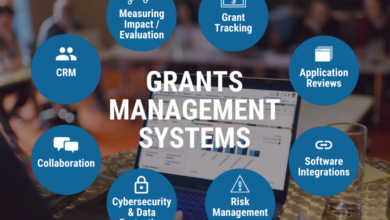Enterprise Application Testing: Why Is It Critical for Business Continuity

In this digitally enabled world, enterprises worldwide are increasingly adopting software solutions to optimize their business processes. Enterprise applications like ERP (Enterprise Resource Planning), CRM (Customer Relationship Management), SCM (Supply Chain Management), HRMS (Human Resource Management System), and HCM (Human Capital Management) play a crucial role in streamlining and automating the operations of large corporations. They facilitate data collection, storage, and analysis, promoting data-driven decision-making.
Given that enterprise applications serve as the lifeblood of an enterprise, ensuring their seamless and uninterrupted operation is of utmost importance. This is where enterprise application testing becomes a critical component.
Why Is Enterprise Application Testing Critical
Enterprise applications serve as the backbone for various departments within a company, facilitating streamlined and improved business operations for multiple users, teams, and departments. The smooth functioning of these applications is paramount, as any glitch in a specific business process can have widespread implications across different departments and teams.
Therefore, ensuring the seamless operation of enterprise applications becomes a crucial factor in maintaining overall organizational efficiency. The interconnected nature of these applications necessitates a focus on continuous optimization and flawless performance to uphold the integrity of business processes across the entire enterprise.
When an enterprise application Needs to be tested
- Configuration: Enterprise application testing plays a critical role in implementation/ migration phrase. During implementation an enterprise application requires different types of testing – functional, unit, integration, and user acceptance testing.
- Functional testing: It is a type of testing that verifies whether an application adheres to its functional requirements.
- Unit testing: It involves testing various components of an application to guarantee their proper functionality.
- Integration testing: It verifies the proper functioning of various modules within an application when they are interconnected.
- User Acceptance Testing (UAT): UAT holds great importance, ensuring that users are content with the application’s performance and can execute their tasks seamlessly.
- Business Process Change: To keep up with the rapidly changing market conditions, enterprises frequently modify existing business processes. Whenever a change occurs in a business process, regression testing needs to be conducted to verify whether the existing processes are functioning correctly.
- Application Releases: Major application vendors such as Oracle, Salesforce, Microsoft, Workday, and SAP release updates for their applications. These updates typically introduce new features and functionalities. When these updates are implemented, it is essential to conduct regression testing to ensure that these changes have not adversely affected existing functionalities. Additional testing, such as smoke testing, sanity testing, and security testing, may also be required.
In the age of Agile and DevOps, software vendors are introducing changes more frequently than ever. In this scenario, manual testing is not deemed as a practical solution, as it cannot ensure the required speed and coverage. It is advisable to transition to automated testing for more efficient and comprehensive testing processes. However, finding the right ERP testing tools is a challenging task. Let’s make it easier for you with our tips.
In the ERP testing tools, you should look for following things:
- No Code Automation: During testing phases such as regression or UAT, the active participation of business users is crucial. Their involvement is indispensable as they possess an in-depth understanding of business processes. However, being non-technical individuals, they may struggle to operate code-based enterprise application testing tools. Therefore, opting for no-code test automation platforms is recommended.
- End-to-end Coverage: Enterprise applications rarely function in isolation; they frequently integrate with other applications. Therefore, it is advisable to choose a test automation platform that provides comprehensive end-to-end coverage.
Test Recommendation: When a new update is released, QA teams often face challenges in choosing the appropriate set of regression suites. Including too many redundant tests can lead to over-testing and insufficient coverage, while including too few tests can result in under-testing and increased exposure to risks. A test automation platform that suggests a regression suite based on the impacted business processes can be beneficial. This way, QA teams only need to select specific test cases, ensuring effective management of business risks.




